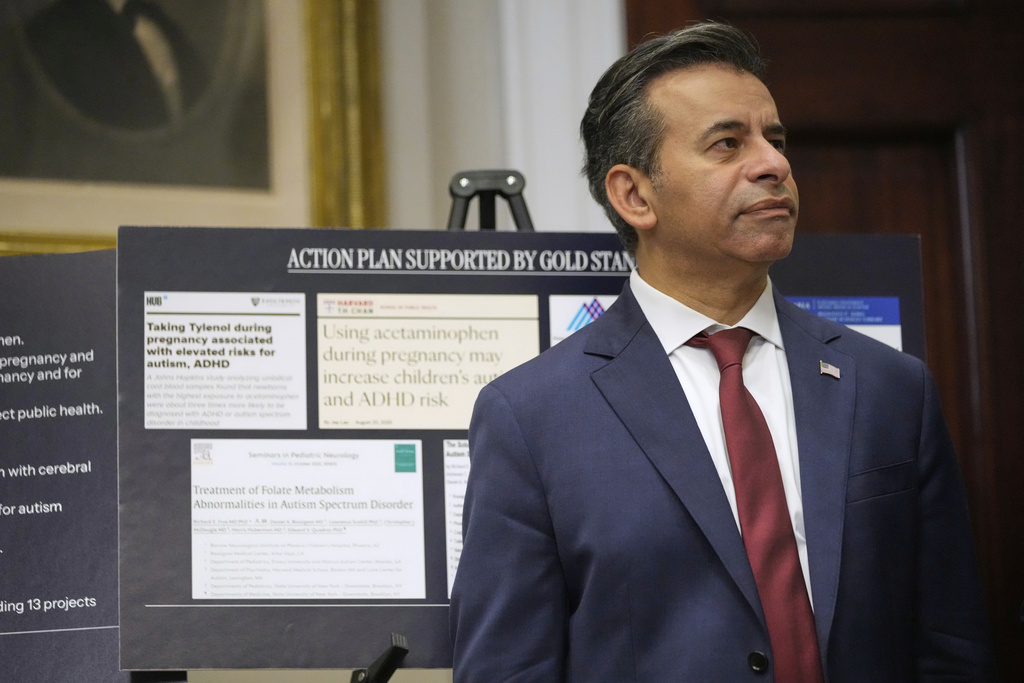


Health and Human Services Secretary Robert F. Kennedy Jr. is citing a complex statute to defend his department against conservative pushback against the Food and Drug Administration’s approval of a new abortion pill, saying that the agency’s hands are tied by the law when approving generics.
President Donald Trump’s health appointees drew ire from anti-abortion Republicans this week because the FDA, under Commissioner Marty Makary, approved a second generic version of the abortifacient mifepristone, which is used in nearly two-thirds of all abortions in the United States.
Recommended Stories
- Economist: California rule will raise health insurance costs
- Hawley says he was 'misled' by Trump FDA pick over abortion pills
- Fact check: Healthcare for illegal immigrants and the government shutdown
Kennedy said Thursday evening on X that the FDA “only approved a second generic mifepristone tablet because federal law requires approval when an application proves the generic is identical to the brand-name drug.”
But anti-abortion Republicans lambasted Kennedy and Makary on Friday, as both committed during their confirmation hearings to do an in-depth safety review of mifepristone. The Republicans argue that the new generic approval undermines the intention of the safety review.
The specific statute regulating the FDA’s typical generic drug approval process is U.S. Code 21.9.A Sec. 355, established by the Hatch-Waxman Act in 1984.
Here is what to know about how the law applies to what companies must do to get their generics approved and how long the process takes.
Documentation for approval
Evita Solutions submitted an abbreviated new drug application, the most common form of generic drug application granted by the FDA. Essentially, a pharmaceutical company only needs to prove that its drug functions in the same way as the already approved name-brand drug to be granted an ANDA.
According to FDA guidance documents, the agency must ensure that the generic drug is the “pharmaceutical equivalent” to the name-branded product that underwent a more stringent review process.
This includes ensuring that the active ingredient is the same as the name brand, that it works in the same mechanism, and that the “inactive” ingredients in the drug are safe.
The federal statute prohibits the HHS secretary from requiring the company to provide additional information, including regarding its safety.
Timeline of generic approvals
The federal statute specifies that the FDA must either approve or deny a drug company’s application “within one hundred and eighty days of the initial receipt of an application.”
Additional time can be given to delay the decision “as may be agreed upon by the Secretary and the applicant,” in this case, Evita Solutions.
Advice websites for pharmaceutical developers looking to obtain an ANDA say that, although the statute requires a decision in 180 days, the average approval process takes upwards of 30 months, or 2 1/2 years.
Evita Solutions submitted its application on Oct. 1, 2021, during the Biden administration, according to the approval decision letter made public this week.
HAWLEY SAYS HE WAS ‘MISLED’ BY TRUMP FDA PICK OVER ABORTION PILLS
Neither the company nor HHS answered specific questions from the Washington Examiner regarding the timing of the approval process or any agreements made.
Sen. Josh Hawley (R-MO) sent an oversight letter to Makary on Friday afternoon, requesting that he provide more information about the internal discussions of the approval process. Hawley set an Oct. 10 deadline for Makary to respond.
